Are you considering supplementing with creatine? This blog covers everything you need to know to make an informed decision. You’ll understand how creatine works in the body, its benefits for strength, muscle growth, and cognitive function, and who can benefit most from using it. Whether you’re an athlete, a casual gym-goer, or simply looking to improve your overall performance and recovery, creatine could be beneficial to you. We’ll also address common concerns, side effects, and myths surrounding creatine use. If you’ve been on the fence, this is the resource for you.
What is Creatine?
Creatine is a naturally occurring compound found in our bodies and derived from amino acids in the kidneys and liver. Creatine helps form phosphocreatine, a stored form of energy in your muscles. During high-intensity, short-duration activities (like sprinting or lifting heavy weights), your body taps into phosphocreatine to quickly regenerate ATP (adenosine triphosphate), which is your body’s main energy currency. In essence, creatine is one of the precursors to energy in the body.
Creatine is found in certain meats, fish, cow’s milk, and is widely available through supplementation. That’s right, creatine is a supplement, not a banned substance or a steroid. Creatine is by far the most studied, safe, and effective supplement available, and has proven to be beneficial for almost anyone, whether you’re an athlete or not.
Types of Creatine
There are 3 types of creatine that are most studied and known.
- Creatine Monohydrate – The most widely used and most researched. It’s also the cheapest source of creatine.
- Creatine Ethyl Ester – More quickly absorbed by the body, but may cause more bloating.
- Creatine Hydrochloride (HCL) – HCL is a more concentrated form of creatine, requiring lower doses than monohydrate. It’s usually more expensive because of the enhanced solubility & lower dosage required.
Both creatine monohydrate and HCL are both shown to be effective through research, with the most research done on monohydrate. Creatine Monohydrate also happens to be the cheapest, most widely used creatine, and is greatly beneficial unless another type works with your body better.
How Does It Work?
First, creatine is stored as phosphocreatine. When you consume creatine (either through food like red meat or supplements), your body stores it in your muscles in the form of phosphocreatine.
During intense exercise, your muscles use ATP (adenosine triphosphate) for quick energy. ATP gets broken down into ADP (adenosine diphosphate), which can’t be used for energy until it’s converted back into ATP. Phosphocreatine donates a phosphate group to ADP, rapidly regenerating ATP, to replenish your muscles with a quick energy boost. By replenishing ATP faster, creatine allows you to work out harder and for longer. Creatine also increases water content in muscle cells (cell volumization), which can promote muscle growth. Over time, by enabling better training performance, it contributes to greater gains in strength and muscle mass.
What is Creatine Used For?
Creatine aids in the production of adenosine triphosphate, or ATP, which equates to more overall energy production in the body. Creatine has been shown to improve body composition, anaerobic performance, and muscular strength, power, and endurance.
Creatine has been mostly studied and used for muscle building, strength, and sports performance. New research is finding creatine has incredible cognitive benefits for short term memory, attention time, processing speed time, and overall intelligence. In studies, creatine has been beneficial for people with specific mental health diseases.
Benefits of Creatine
Any adult without kidney or liver or major health issues can take creatine and experience benefits. Especially if you’re an athlete.
If you have kidney or liver issues or other conditions, consult your doctor as it may not be something you should take. The general recommendation is to avoid creatine supplementation if you have kidney disease, high blood pressure, or liver disease.
Does Creatine Cause Any Side Effects?
There is potential for bloating at first and can potentially cause gas or GI distress. However, your body will get used to any side effects after a couple weeks of taking it. People can also experience bloating. This is due to intramuscular water weight gain, which may cause the number on the scale to go up. However this is not fat gain, taking creatine adds water to muscles. These changes should be slight and should go away after your body adjusts to supplementing.
Tips to minimize potential side effects include starting with a smaller dose (3–5g/day), Taking it with food to reduce stomach upset, and drinking lots of water, since creatine draws water into muscle cells and can cause dehydration.
In rare cases, creatine can cause liver damage. For those with chronic kidney disease or impaired kidney function, creatine may increase the workload on the kidneys. As always, consult your doctor before taking any supplement.
Creatine Myths Debunked
- Creatine causes kidney damage: Creatine is completely safe for healthy adults to take. However, creatine does increase kidney functioning, which can be a problem for those with kidney health issues.
- Creatine causes weight gain: Creatine can initially cause bloating and weight gain, however this is because creatine sends more water to muscles. After the first couple of weeks of taking creatine, this will even itself out. Try starting with a small dose then working your way up to lessen this side effect.
- Creatine is a steroid: Creatine is not a steroid, it’s a naturally occurring compound found in our bodies and derived from amino acids in the kidneys and liver.
- Creatine is only for bodybuilders and athletes: Creatine is for anyone who wants to improve strength, performance, and muscle mass and Individuals that want to support cognitive functioning. Creatine is currently being studied for individuals with muscular dystrophy, multiple sclerosis, heart failure, and traumatic brain injury.
- Creatine is not for women: a lot of women and people of all gender identities take creatine.
- You need to “load” creatine: This used to be the norm until research concluded a few years ago that it may not be necessary to load creatine. Instead, it notes that lower daily dosages, of around 3 to 5g, are sufficient. Loading creatine may enable it to saturate faster but you’ll probably pee a lot out. The loading phase isn’t really necessary.
How to Take Creatine Safely
Creatine doesn’t have taste so you can take it with anything: mix it with protein shake, juice, green juice, smoothie, cereal, oatmeal, or even mix it in water and take it as a shot. However, do not mix creatine in your coffee as the caffeine can denature the creatine, making it less effective. Companies are now producing creatine gummies, which can be more expensive.
Thorne is our preferred brand which is NSF Certified for Sport®, meaning it’s tested for compliance with label claims and to ensure the absence of more than 270 substances banned by major athletic organizations, such as stimulants, steroids, diuretics, beta-2 agents, and masking agents. [Here is the link]. Want to try creatine gummies? [Here’s our favorite brand]
Who Should Take Creatine & Who Shouldn’t
Anyone that wants to see muscle gains, improve athletic performance, or cognitive function should try creatine. Our suggestion is to start slow with 3-5g/day.
Individuals with uncontrolled hypertension, kidney disease or liver disease should not supplement with creatine. Talk to your doctor before taking any new supplements.
Should You Start Taking Creatine?
Whether or not you should start taking creatine depends on your goals and lifestyle. Creatine is one of the most well-researched and effective supplements for improving performance in high-intensity, short-duration activities such as weightlifting, powerlifting, sprinting, or HIIT. It can be especially beneficial if you’re looking to build muscle, strength, or power. People who follow vegetarian or vegan diets often have lower natural creatine levels due to the absence of animal products in their diet, and may experience more noticeable benefits from supplementation. Creatine is also helpful for adults over 40 who want to maintain muscle mass and strength as they age. Creatine can aid in reducing muscle damage and inflammation, leading to improved recovery between workouts, and emerging research highlights cognitive benefits.
However, creatine isn’t for everyone, though. If you don’t train regularly or intensely, are already meeting your fitness goals, or aren’t consistent with basic habits like hydration and nutrition, you may not notice much benefit. Importantly, if you have kidney disease or a history of kidney problems, chronic conditions such as hypertension or liver disease, or are taking medications that impact your kidneys or hydration levels, you should consult with your doctor before supplementing with it.
Want to learn more about the benefits of creatine? Listen to episode 230 of the Stronger Than Your Boyfriend Podcast: Creatine Questions Answered
Sources Cited:
Kreider, R. B., Kalman, D. S., Antonio, J., Ziegenfuss, T. N., Wildman, R., Collins, R., … & Lopez, H. L. (2017). International Society of Sports Nutrition position stand: safety and efficacy of creatine supplementation in exercise, sport, and medicine. Journal of the International Society of Sports Nutrition, 14(1), 18. https://doi.org/10.1186/s12970-017-0173-z
Dolan, E., McGee, M., & Syrotuik, D. G. (2024). Effects of creatine supplementation on body composition and performance: a meta-analysis. Nutrients, 16(1), 138. https://doi.org/10.3390/nu16010138



